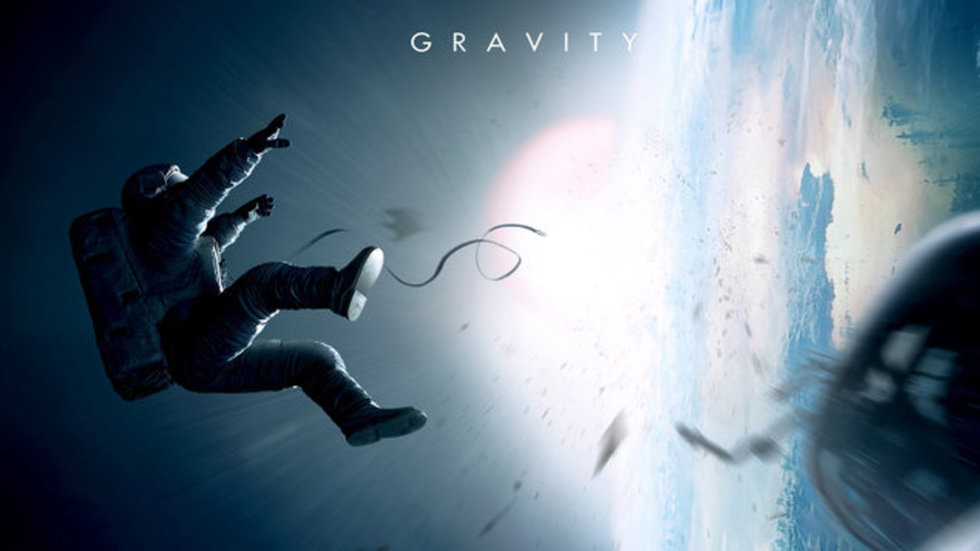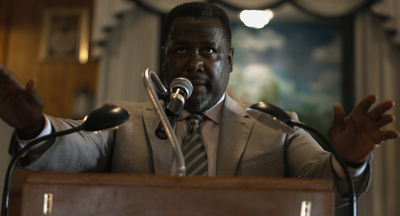
BY ZACHARY WIGON |
Racking Focus: How 'Gravity' & 'All Is Lost' Do What TV Can't
No subplots. No supporting characters. How two of this fall's most critically-lauded films take full advantage of their limited storytelling time - and why you'll be seeing more tightly-focused films like this in the future.

A few weeks ago in these pages, I wrote about how Breaking Bad indicated that cinematic storytelling would have to move in a new direction. The reason? Brilliantly written thrillers like Breaking Bad are simply no match for the movie equivalent; when a TV show has 50 hours to build tension and create narrative complexity, how can a two-hour movie possibly compete? The solution that I hit upon was for movies to emphasize virtuoso stylistics to bring their own brand of entertainment to audiences, since movies, compared to TV shows, have much more time to spend in production on a per-screen-minute basis, and so can afford to devote time to nailing breathtaking shots and visuals in a way that TV simply can't afford to. Nicholas Winding Refn's Drive might be the best recent example of this approach to filmmaking.
By boring down deep into the minutiae of a single problem, excavating it in all its fascinating detail, these films exert a singular terrifying grip for every second of their running times.
While I absolutely still stand by that belief, two wildly critically acclaimed films that are currently in release are pointing toward another style of moviemaking that plays to cinema's strengths in a fashion that TV can't compete with. (We should get used to the TV-vs.-cinema debates - they're not going anywhere.) These films are Gravity and All Is Lost. Two of the most well-reviewed American films of the year, each of these films deals not with a traditional filmic narrative (protagonist and antagonist, conflict, subplots, supporting characters, comic relief, etc.) but rather employs a remarkably straightforward mode of storytelling that is absolutely singular in its focus. Both disaster films, Gravity deals with two astronauts' attempt to save their lives after their shuttle is destroyed; All Is Lost follows one man's attempt find rescuers after his boat is wrecked.
Both of these films are remarkable in the sense that they are completely atypical American film narratives; their stories are extremely straight and narrow, with minimal distraction from the one central problem the character(s) address. By boring down deep into the minutiae of a single problem, excavating it in all its fascinating detail, these films exert a singular terrifying grip for every second of their running times. It's a highly different mode from TV, or from most Hollywood films, which try, in their structures of multiple characters, multiple problems, multiple tones, to mimic what TV is capable of doing better.
This narrative choice to go narrow is exactly what gives these films such power.
Rather than trying to beat TV at its own game of creating a thrilling narrative complexity or a fascinating web of supporting characters, Gravity and All Is Lost use the relative brevity of the cinematic story to their advantage, taking us on singular journeys that are made all the more powerful by the fact that they are not diluted with subplots or supporting characters. Unlike TV, which requires a myriad of supporting characters in order to function, these films run on their pared-down-ness, their stripped-to-the-bone brand of storytelling; its this minimalism that increases the level of focus we maintain on their stories. This narrative choice to go narrow is exactly what gives these films such power; can you imagine if Gravity was cutting back and forth between the astronauts in space and, say, Sandra Bullock's family down on Earth, worried about her? So much narrative tension would be lost.
Films are short enough that they can choose to be preoccupied with only one problem for 100 minutes. TV doesn't have the luxury of focusing like this.
These films exhibit the strength of an unavoidable cinematic trait - the fact that films are short enough that they can choose to be preoccupied with only one problem for 100 minutes. TV doesn't have the luxury of focusing like this. As TV continues to get even better at doing what Hollywood cinema has traditionally done so well, look for movies to shift their focus into increasingly narrow terms, as these films have done.

